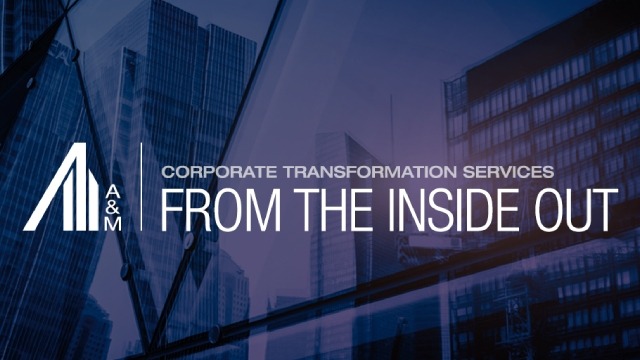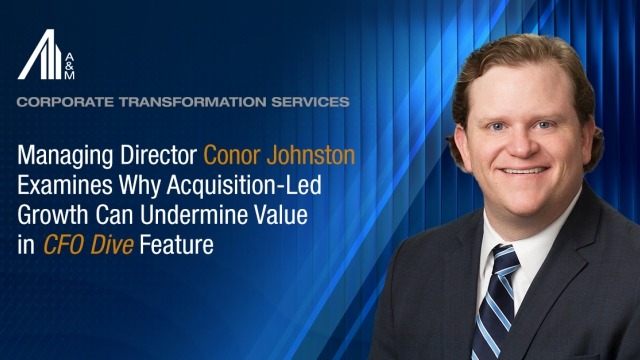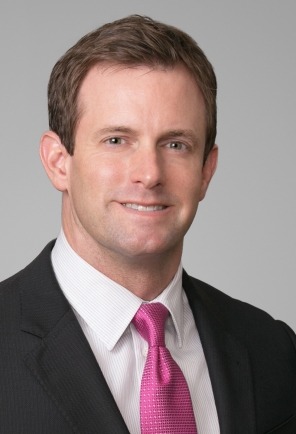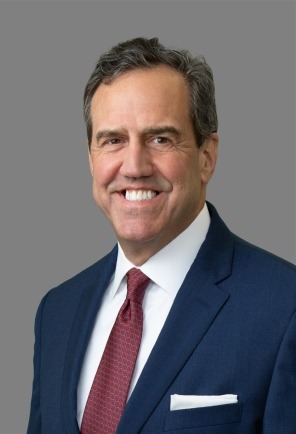When conventional, incremental change isn’t enough
When conventional, incremental change isn’t enough
We accelerate lasting bottom-line results from your transformational performance improvement initiatives.
A&M’s restructuring and turnaround heritage brings data driven, action-oriented leadership to challenging transformations. Our professionals have a proven track record in leading businesses through tough, complex initiatives.
A&M pairs deep operational, industry and functional expertise to help management teams and boards evaluate their business with fresh perspectives. We help clients challenge current business models and cost structures and enable them to make the right decisions to transform the business.
Clients call us when:
- A new CEO or CFO wants to assess the needs of the organization using a “clean sheet” approach to quickly make a positive impact.
- Circumstances require a greater focus on cash and rapid non-essential cost cutting.
- They must rapidly reset the entire business model to survive a crisis and emerge stronger.
- Performance has faltered and they need a fresh point-of-view to identify potential improvement and value creation initiatives.
- They want an independent advisor who tells them the realities that they need to hear, not just what they want to hear.
- They need to move beyond a “transformation plan” to drive real, transformative change and value creation.
- Previous initiatives by the company fall short of realizing necessary change.
- CEOs want to implement necessary changes faster than doing it themselves and with less risk.
Our services include:
- Rapid Results: Provide a rapid and robust assessment and prioritized improvement plan for top line growth, SG&A spend reduction, gross margin improvement, supply chain optimization and productivity enhancement including evaluating operating model on fit-for-purpose, and stress testing in-flight initiatives for alignment.
- Implementation Planning: Collaboratively develop implementation plans that are practical but aggressive, identifying key steps, resources required and timing.
- Results Delivery: Build and execute the transformation roadmap, install rigorous governance processes to cement accountability, monitor progress, mitigate risk, and course correct as necessary. Incorporate roadmap execution into long range financial plans, annual budgets, and all ongoing operations and reporting.
- Transformation Program Management: Establish standardized tools and approaches to be used within and across all of the initiative teams (e.g., protocols, processes, tool sets, and decision governance). Institute issue escalation process to quickly resolve complex decisions.
 |
|
 |
RELATED INSIGHTS
Today’s economy is riddled with the unpredictable – a pandemic, changing customer behavior, activist investors, and geopolitical volatility and trade wars create uncertainty as leaders rethink their businesses. Successfully navigating these markets and competitive factors often demands change at a pace and scale many companies struggle to achieve.
In this webcast, A&M leaders discuss what businesses can do right now, using the time in our current lock-down, to best prepare for the recovery into a "new normal" market and world.
As economies reopen, the problems get harder for businesses that have been severely disrupted by Covid-19. A&M’s Malcolm McKenzie explains the significant challenges for managing cash, resizing operations and changing business models that if not managed proactively, could threaten recovery.
Economies worldwide are opening up as Covid-19 lockdown restrictions ease, but there will be no return to business as usual. Instead, CEOs find themselves with a unique and very short window of time to reset their business models to meet new customer expectations, and to emerge stronger in the future.
Radically changing consumer dynamics and the pace of technological change are fundamentally altering how companies today are leveraging data and analytics to enhance customer experience, mitigate risk, improve operational efficiency and increase revenue.
Corporate transformations typically focus on realigning operating models, changing embedded ways of working and bringing costs under control, such as reducing back office overheads and making operations more efficient.
Few sectors are in greater need of transformation than oil and natural gas producers in North America. With the relatively stable oil price of the last four years, too many small producers lack the scale to cover their production costs and as a result, have built up substantial debts: S&P figures show around $137 billion in borrowings will be due by 2022.
The equivalent of improving your short game is to implement improvements that have a positive impact for the business quickly in order to reassure investors and give company leaders the breathing space needed to address the longer-term issues and necessary changes.
Many companies invest as much as 50 percent of their revenues into procurement spending - buying goods and services from external suppliers - so ensuring it is competitive is a key part of every transformation project.
Benchmarking can not only help identify areas of underperformance but also act as a “call to action” for the management team to undertake an aggressive, enterprise-wide transformation.
Two hard decisions are inevitable when a company sets out to transform its performance.
CEOs who embark on a corporate transformation challenge their organizations to act and think differently than they did yesterday to achieve step change improvements in EBITDA that will provide funding for real growth.
To better understand the future of physical space in U.K. retail A&M has partnered with Retail Economics to provide new data-backed insights into the ‘perfect storm’ sweeping through the industry.
A&M's report assesses the expected impact of the coronavirus on the retail industry
The COVID-19 pandemic has sent shockwaves throughout global communities, dislocating international supply chains and forcing operations to safely close down or to run and operate under new regimes. As a result, with revenues falling, organisations globally have rightly focused on pivoting to cash and business continuity actions.
Malcolm McKenzie, a Managing Director with Alvarez & Marsal, speaks at the Non-Executive Director (NED) Awards about the A&M Experience.


















